“I only love night because I have only smelled it. Actually living in the night means no talking. I can only say, ‘No flashlight,’ because once I forgot it. Actually living in the night means actually walking in the dark, means to find caves in song.”
-“No Flashlight” by Mount Eerie
I have struggled with how to present Scott Barely’s Sleep Has Her House to other people, with each review draft seeming incomplete or imprecise or somehow lacking in explanation or justification or completeness, a lack of words resulting in a positively ridiculous flow of other words attempting to explain the lack, the way you circle yourself when you can’t figure out the one sentence that will summarize what you’re feeling, what you’ve done, what you’ve seen, who you are–communicating to someone else something that feels incommunicable. I don’t have a name for this mood, this emotion, and all attempts at description have felt like glancing blows, hitting an armor of experiential certainty that my words can only circumnavigate, never investigate quite right. I’m describing the outside of the labyrinth, not the path through. The closest I can get is my own obliqueness, my own opacity and digressions and description by way of comparison. What follows, then, is a series of false starts that might operate in a way that gives a hint at the true shape of the thing:
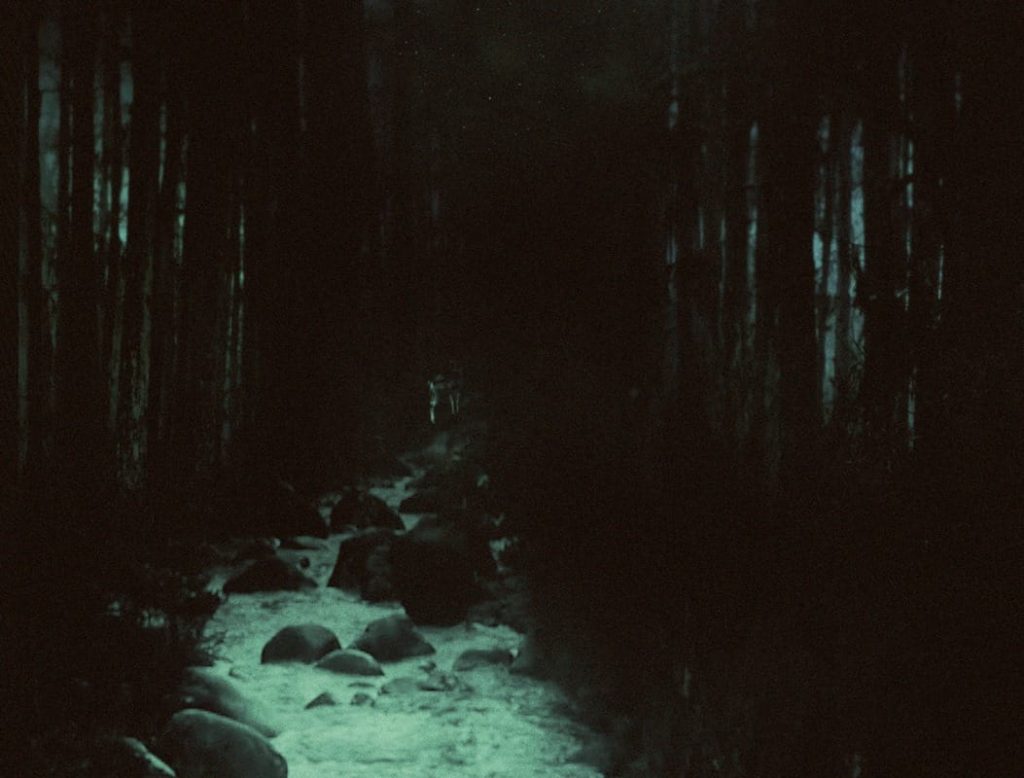
The modern consumer grade digital camera (the kind found in your phone), when photographing in the dark, becomes a kind of pareidolia-sympathetic creation machine, supplanting the presumed certainty of human vision with a layered artifact that displaces that certainty. Or: the iPhone’s inability to capture pristine images in low light causes us to see things in the darkness that aren’t “really” there, but the “really” is a breakdown of our own ability to perceive things. Photo-documentation is, of course, representational, not documentarian, because there exists no know apparatus that can perfectly capture the reality of a moment. We are looking at an approximation, but the approximation is close enough to “real” as we might see it that most of the time this distinction can seem pedantic. The phone camera, on the other hand, with its low-light failure, creates artifacting that is different enough from our perceived world that its unreality becomes noticeable and clear. Some of the most significant moments from Sleep Has Her House are powerful precisely because of this technological “failure” (read: unintended creation): when we look into darkness, what we see is shaped by what we are, and it is in this that we place ourselves into the darkness and merge with it. Living in the night means expanding ourselves outside of ourselves: the inner dark that becomes the outer dark of creation.
There is no narrative as we’ve come to understand it in Sleep Has Her House. There are no spoken words, there are no people in frame at all. Instead, there is a vast wilderness, there are deer, and a lightning storm. There is a shot where the camera is locked down, facing a river as the sun falls behind the earth, and we see it all until everything turns black. And we stay in this black for minutes at a time, with no light coming to protect us or save us; this is cinema of the complete night, a night without lanterns or streetlights or a house to hide in, just the presentation of our own senses’ failings. Make no mistake, there is an overwhelming sense of fear here, of vulnerability, of the Providence and of the divine hollowness. What we are confronting is not just a physical night, but our own conscious night, or the night of conscious life, an emptiness hung up in a place of honor as if it were to be cherished. What the night outside shows us is the meaninglessness of our own night, and the fear of the dark is a fear of our own subconscious knowledge that what we think of us the “individual” contains nothing.
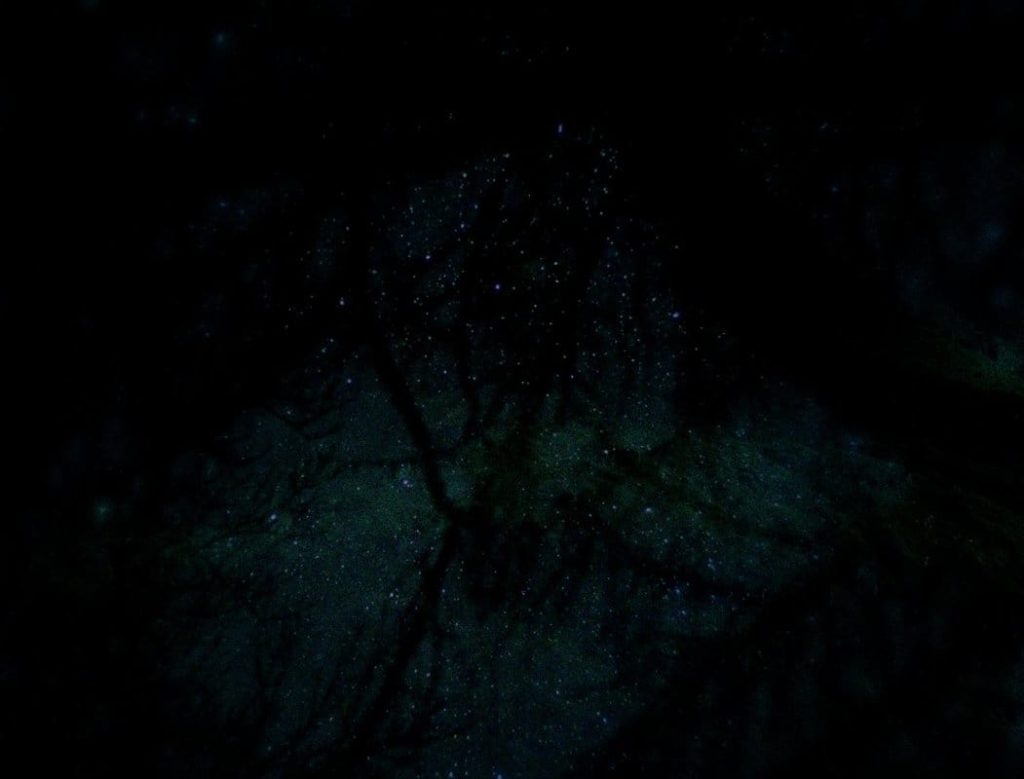
“Such a ‘feeling of cosmic panic’ is pivotal to every human mind. Indeed, the race appears destined to perish in so far as any effective preservation and continuation of life is ruled out when all of the individual’s attention and energy goes to endure, or relay, the catastrophic high tension within. The tragedy of a species becoming unfit for life by over-evolving one ability is not confined to humankind. Thus it is thought, for instance, that certain deer in paleontological times succumbed as they acquired overly-heavy horns. The mutations must be considered blind, they work, are thrown forth, without any contact of interest with their environment… The identity of purpose and perishment is, for giant deer and man alike, the tragic paradox of life. In devoted Bejahung, the last Cervis Giganticus bore the badge of its lineage to its end. The human being saves itself and carries on. It performs, to extend a settled phrase, a more or less self-conscious repression of its damaging surplus of consciousness. This process is virtually constant during our waking and active hours, and is a requirement of social adaptability and of everything commonly referred to as healthy and normal living.”
-Peter Wessel Zapffe, “The Last Messiah”
Our waking hours, our active hours, are defined by the repression of reality. We speak of the night as obfuscatory, as if the clear light of day is somehow more revelatory, more beautiful or straightforward, and that continues in every way to our language–to “shine a light”, to make clear, to explain. But nothing is explained when the light of consciousness is shined upon it, because consciousness itself is the impossible puzzle box we find ourselves locked into. We glorify it to deny that we are trapped within our sense of self, that the individual is a limited being. The “cosmic panic,” as Zapffe puts it, is twofold: one, the form that he explicates, is the sense of panic that comes over the being that realizes its being is both meaningless and temporary. The second explication is related, but unexamined by Zapffe’s anti-natalism, and that is the limited nature of the individual, the very sense of the self, and not just the terror of the consequences to the self. It is the “I” that is the problem, not what happens (or might happen) to the “I.” The fear of the metaphorical night is, in its core, a fear brought on by the very fact that there is “you,” that “you” is separate from “me.” What goes unexamined in “The Last Messiah” is the falseness of this idea. Indeed, there is an alternate option (or rather, a parallel ethical concern and philosophical conclusion) that operates from the same feeling of cosmic panic, and that is the presentation of a way through that fear thusly: ego death and the pursuit of God (which is the same thing as ego death: the demiurge, being non-decided processes and a tautology, is merely an aspect of what, not of why).
What the night tells us, bluntly, is that there is no “I.” The self is a construct of an overdeveloped mind, the end result of a terrible joke by evolution that has convinced the self-aware being that self-awareness is an ontological reality. In fact, the “self” is a division of a greater whole, like an individual tree in a forest, like a single star in a galaxy, a messy, smeared point on a continuum that has been made to believe it exists outside that continuum. When we talk about ego death, we take the term from strains of thought as disparate as psychedelic experimenters, Eastern spiritual teachers, and Joseph Campbell’s utterly lacking “hero’s journey” bullshitting, but what we mean here specifically is: the (usually momentary and fleeting) separation of consciousness from the self-limiting of the mind, allowing the conscious being to perceive a reality that does not include the self as an ontological category, and, indeed, as a falseness. Essentially: one achieves ego death when they internalize, even if for a moment (because the nature of evolution’s blockades on our consciousness makes impossible the true acceptance of ego death for long periods of time without serious mental harm), the fact that “being” is not a true phase space, but (to mix my math and physics metaphors) a single subset of power set bounded by the universe, with no significant features to its name besides its ability to pointlessly define “itself”. The traditional western way of defining the individual in relation to the universe might be described thusly:
- Our set, U (standing for universe), contains the elements {x, y, z, I}, with I (the individual) being an irreducible and defined object of elements {a, b, c}.
but ego death would correct it as:
- Our set I is a subset of the set U, and as such U contains {a, b, c, x, y, z} with special attention being paid to the fact that I is not self-contained- i.e., the power set of U would contain not {I, x} but {a, x}, {b, x}, {c, x} and so on.
The act of living is the act of particles interacting, the sharing of memories, this intermingling of the subset’s parts with the parts outside the subset, and indeed the subset’s unimportance and lack of definition except defined by the subset itself (a subset that could reasonably be redefined as absolutely any re-shuffling of elements with no appreciable difference). Personhood is not a contained, essentialist object, but a loosely aggregated, distributed flux of interactions. “You” is momentary and imaginary; “you” are evolutionary sleight of hand.
But why are these things, in this construction, interchangeable? What is being defined is a kind of landed Gnosticism, with the previously dismissed demiurge existing in the irreducible and base-assumption rules of the universe, and the monad being remote not due to a spiritual distance but a perceptual one. I’d say that the pursuit of God is in its core a pursuit of ego death, and that the two are one and the same- when we reconnect with the Godhead, we are diminishing our personhood to the extent that it becomes non-existent. The Godhead is the same thing as the loss of the self.
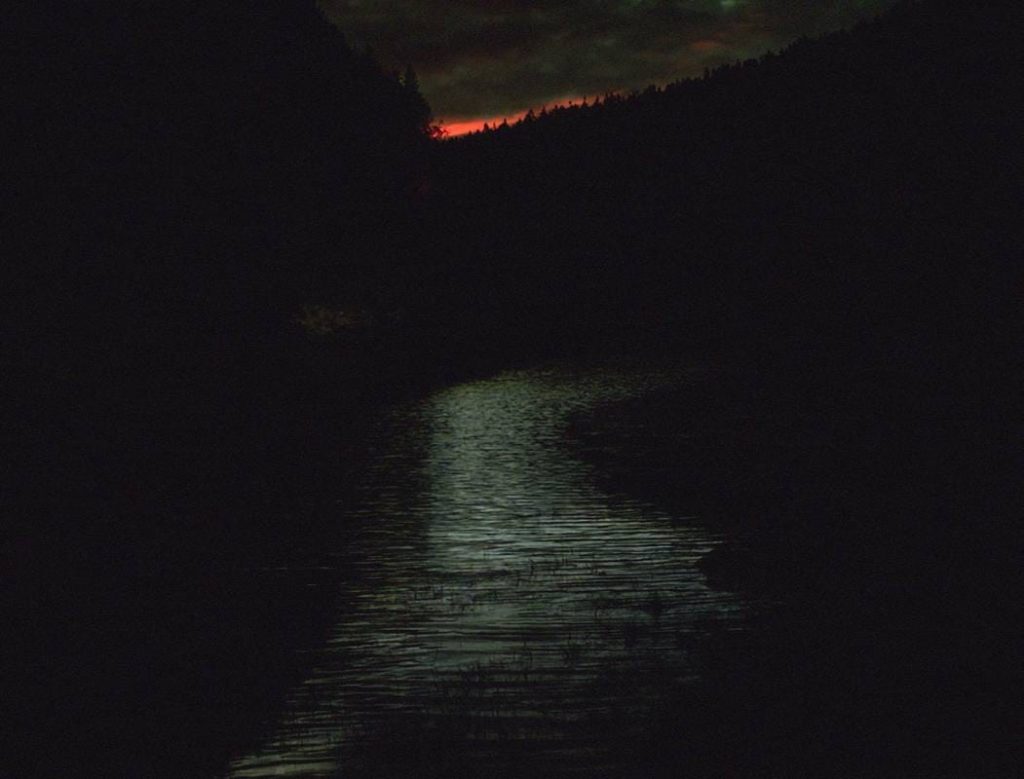
“Whether or not there is any type of god, I’m not supposed to say, and today I don’t really care. God is a word, and the argument ends there.”
When I was in middle school, I went to S.P.L.A.S.H. Camp (in my memory it was an acronym, but Google doesn’t show any results for this, so take that as you will), a Lutheran summer camp meant to connect one with God, as most Christian summer camps are wont to do. I went because I was deeply, deeply invested in my church and Christianity, to the degree that I entertained notions of becoming a preacher someday (temporary and noncommittal notions, but still). There was something about it that just seemed to work for me, something that moved me from totally uninterested and uninformed about any religion to attending regular youth group meetings, helping out with Sunday school, volunteering for the Church’s week long day camp as both a member of the Church band and as a group helper. When the music flowed through me right and someone spoke with that quaver in their voice while reading scripture, it turned something inside me over and over again, like trying to start a long unused car, engine turning and turning, and what I wanted was the ignition, that moment where the Spirit moved through me. S.P.L.A.S.H. Camp seemed like the perfect opportunity, a sustained week of worship and praise, and it succeeded for me, in both ways that might have been purposeful and ways definitely not intended.
There was a concert that took place in the central lodge (the same place we had breakfast and every day religious service), wherein some middling Contemporary Christian band (I would die before I have the ability to remember their name) played an awful lot of songs that were damn fine for people already indebted to the faith, and absolutely dreadful for those outside it. Most of the catalog of contemporary Christian standards are well-trod, poorly rhymed, and indistinguishable melodically, and for the most part what passed by was a pleasurable but indistinct blur of what, at the end of the day, are kinda banal musings on the easy parts of God (no doubt, no moral uncertainty, certainly no viewpoints outside of dead center). But then, they played “I Can Only Imagine” (the only Christian song to reach a two times platinum rating in terms of sales, for what that’s worth to anyone), a song about what it might be like to meet God in heaven, and what one will do when that happens. It’s the grand closer, the ultimate CCM power ballad, the song that is always, always the one you end on. There’s nothing that’ll top that. The goal is nothing short of making the Spirit move in you.
And, to my own surprise, I did–the motor finally kicked in, the spark finally ignited, and, for better or worse, it turned out to be something that felt even bigger than the individual salvation of Christianity, a feeling of total forgiveness, of my own being reaching outside myself, sweeping over me, and it was like I saw myself outside of myself. It was like I suddenly became every person there at the summer camp, and every person beyond, feeling not just a multitude of personhood but the feelings of the trees, of the dirt, of the stars–I felt the entire nature of God’s creation roil through me, at once chaotic and serene, a moment of truly clear lucidity in a mountain of super weird dogma that I couldn’t shake, even if I wanted to. I stopped being I, if only for the length of the song, and it was almost painful having to retreat back into my body when it ended. No matter over the years how my feelings on God have mutated or changed (or whether they continue to exist at all), there was a moment there that I’ve been chasing ever since, a sense of, for just a cosmic blink, communing with God, and seeing God in the entirety–I’ve found it in Coltrane’s Interstellar Space, in walking through the woods, in reading Dhalgren, in staring at the stars, in watching To the Wonder for the 10th time, in seeing someone I love for the first time in years–and Sleep Has Her House gave me that same feeling.
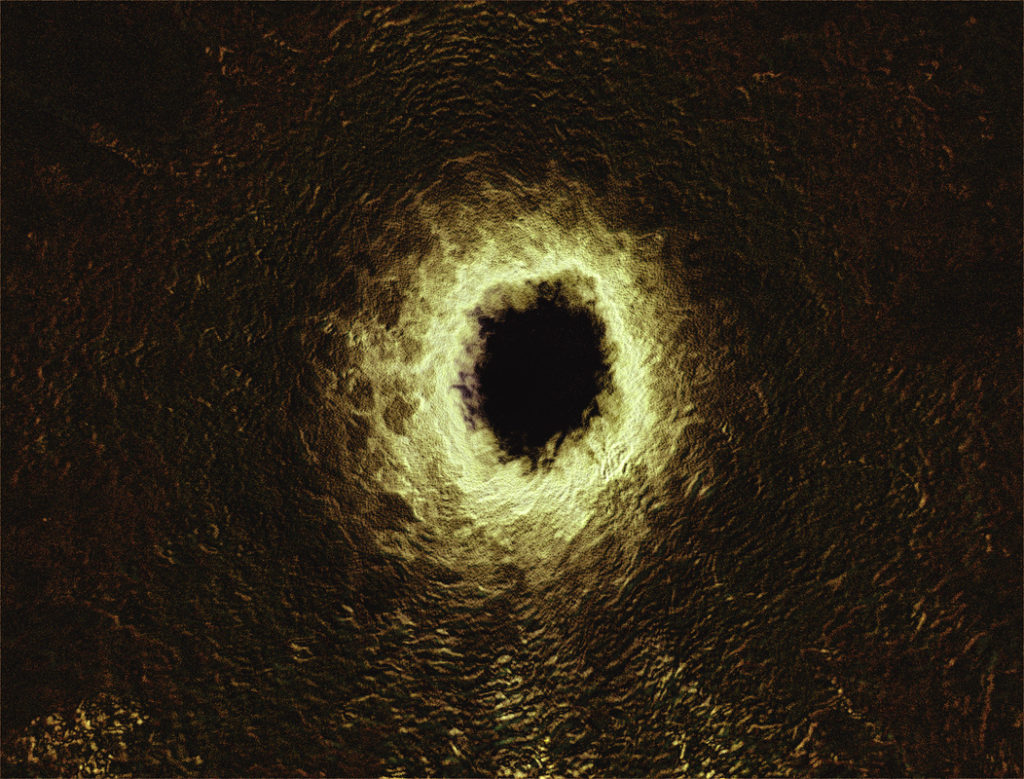
I have to talk around Sleep Has Her House, because there’s nothing to talk about. It just is. It’s beautiful and magnetic and awe-inspiring and terrifying and all of those things I could describe at length, but that doesn’t tell you what it feels like, how it moves, what it actually does. I could tell you that its final images made me cry, but I could say the same thing about plenty of films, yet none of them communicate in this way. It is the closest to a true religious experience you can have in film this year. It is a film that communicates beyond itself, a film that kills “You” and replaces it for a few ticks of the clock with that darkness, not of the evil kind but of the expansive beyond, an abyss worth falling into, worth facing those fears, worth devoting yourself to wholly for the time it asks. It deserves every second.
“You have a bright disguise, mountains and light, but universe, I see your face in blackest night (and you see mine). Oh universe, I see your face looks just like mine. We are open wide.”
-“V. Universe” by The Microphones
—
Sleep Has Her House will be further screened throughout 2017, with announcements being featured on Barely’s website www.scottbarleyfilm.com Those interested in the film can contact Scott Barley at barl1992@googlemail.com for further details and release information.
Directed by Scott Barley; 90 minutes.
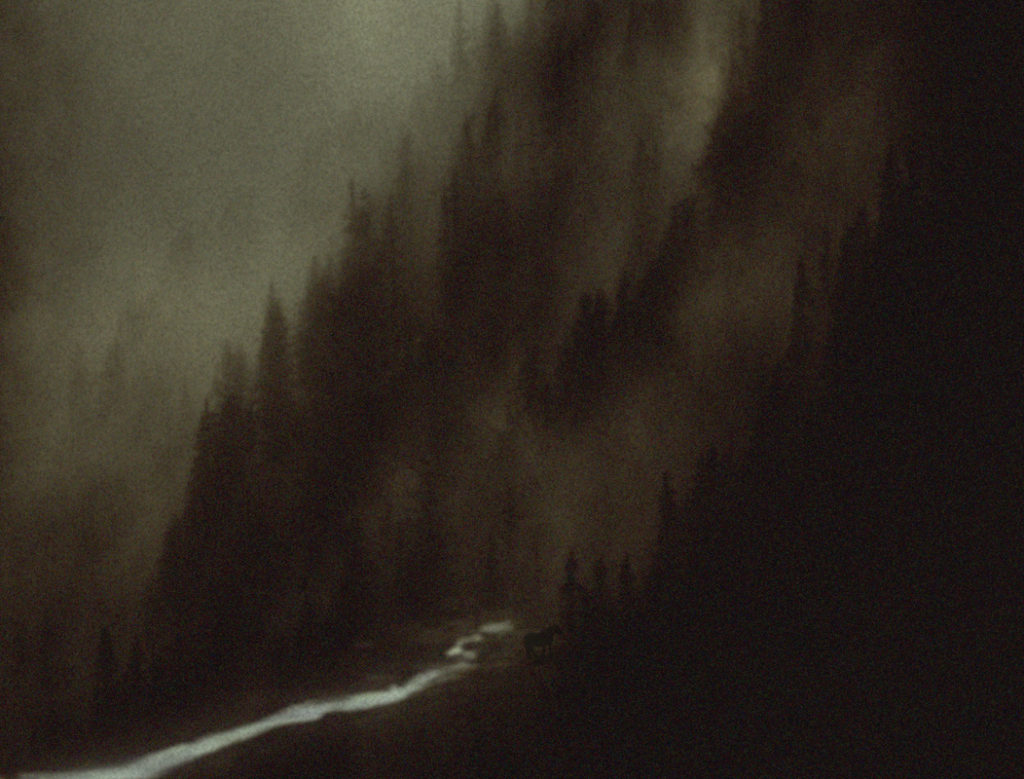
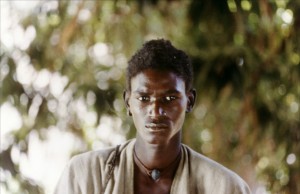


 Derek
Derek
 Isabelle
Isabelle